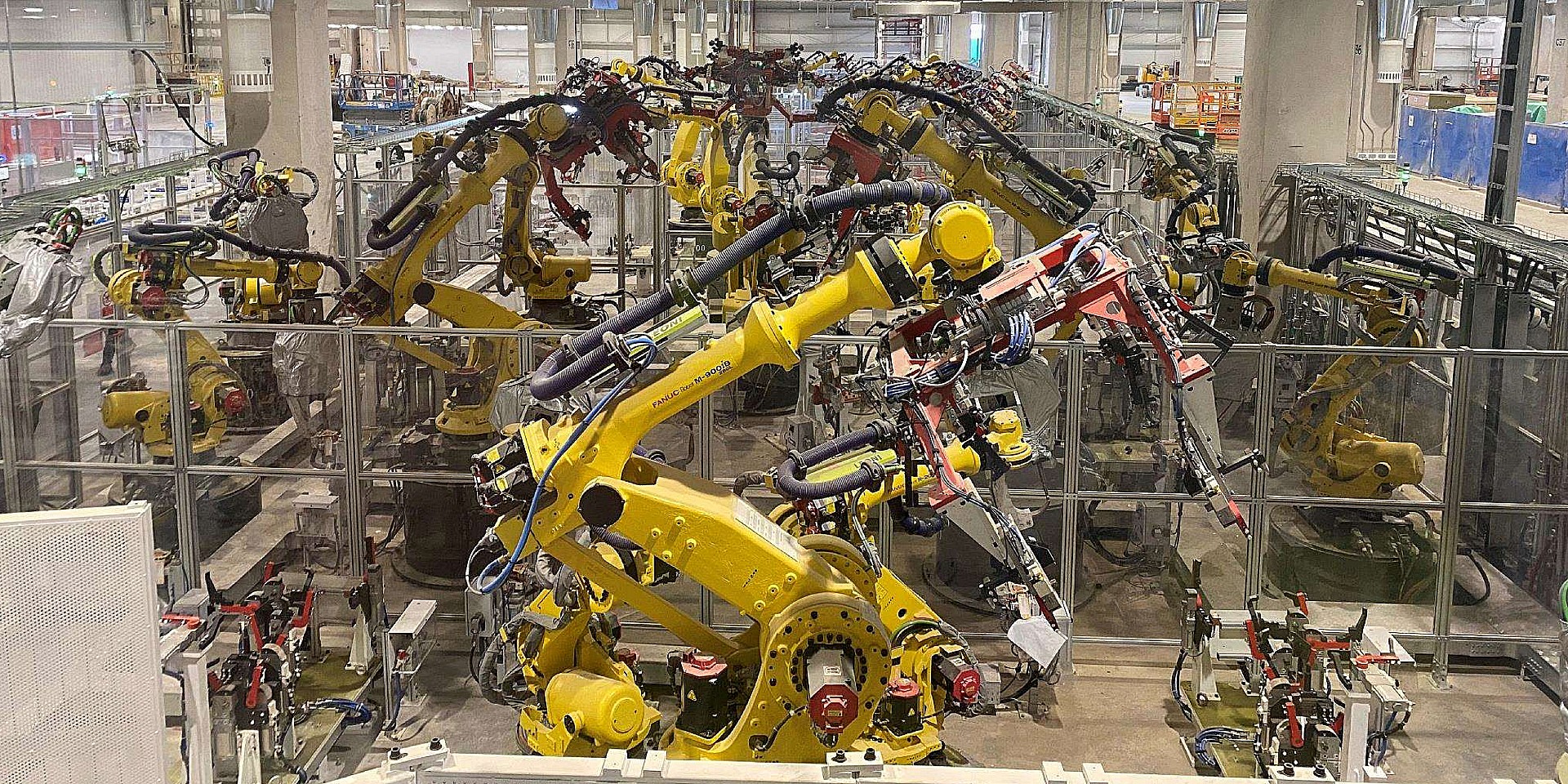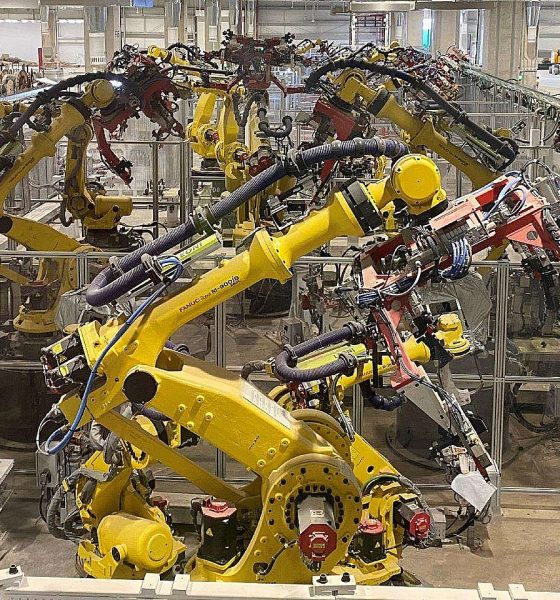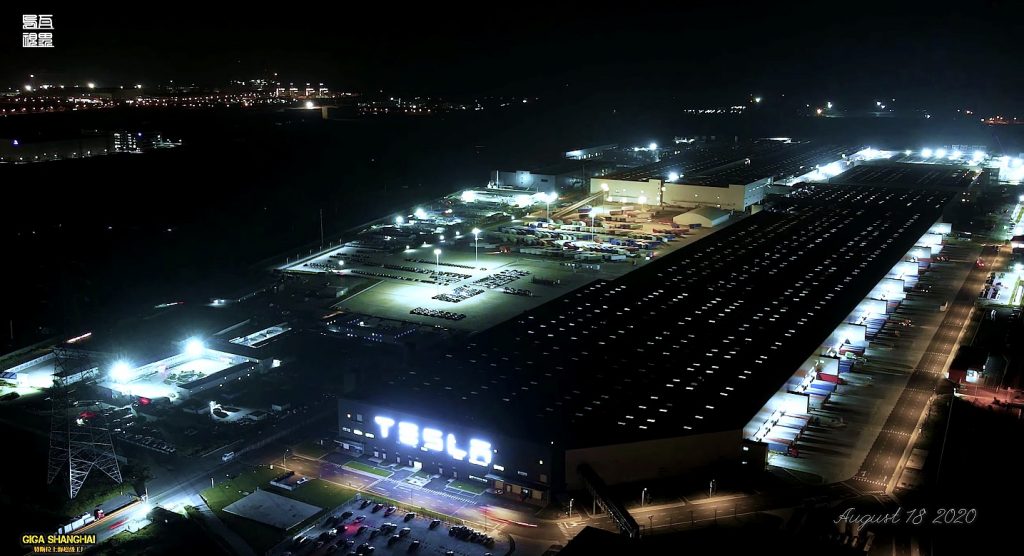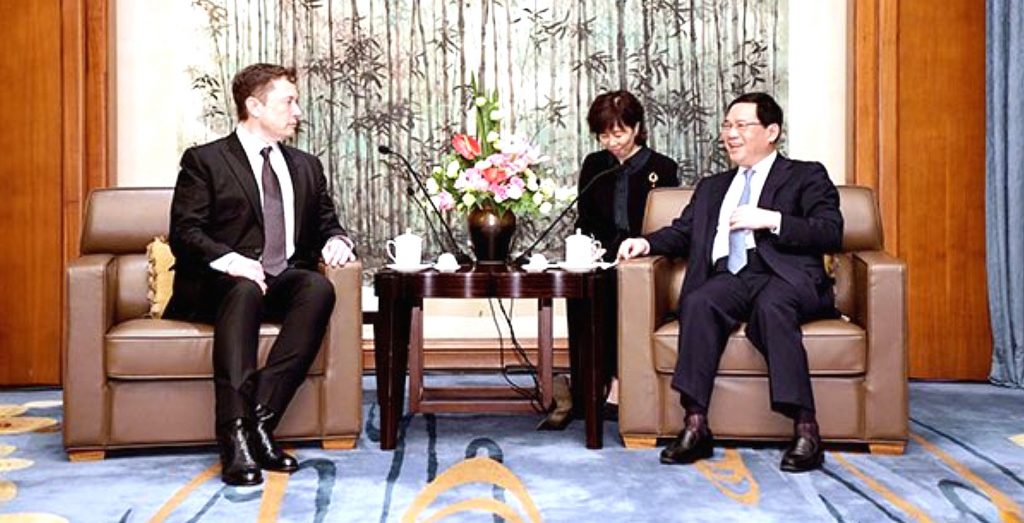

News
Tesla’s sole ownership of Giga Shanghai is a silver bullet amid China’s anti-combustion engine initiative
It may seem almost unremarkable today, but the fact that Tesla holds sole ownership of Gigafactory Shanghai is nothing to scoff at. This is especially notable as China implements a strong push against the internal combustion engine, as highlighted by the country’s new rules that make it extremely difficult to establish a factory producing gas-powered cars starting 2021.
In September 2019, a top Chinese industry official announced during an automobile conference that the country was planning on phasing out fossil fuel-powered vehicles. Few details were shared during the time, but recent updates from China show just how serious the initiative would be.
At a press conference on Tuesday, the National Development and Reform Commission, the country’s top economic planner, noted that China will no longer allow new companies that make fossil fuel-powered vehicles to be set up in the country. The new rules, which were published last week, came after the commission announced notable changes to China’s auto industry investment policies earlier this year.

China has taken a very supportive stance for its new energy vehicle segment, which comprises battery-electric, hybrid, and fuel-cell cars. Currently, the country stands as the world’s largest market for electric vehicles, and it has implemented programs that are aimed at discouraging car buyers from purchasing fossil fuel-burning cars. Among these are restrictions for ICE cars in cities to notable subsidies for new energy vehicles.
With China’s updated rules in place, even existing carmakers that have already established a presence in the country will find it difficult to expand their manufacturing operations for gas-powered cars. If an automaker wishes to establish an ICE vehicle factory, the company would have to meet several strict requirements.
These include proving that their manufacturing efficiencies are higher than the industry average. Companies that produce ICE cars must also make more new energy vehicles than the industry average. Automakers must spend at least 3% of their revenue on NEV research and development as well, among other requirements.
China’s update sets the bar for carmakers so high that only a few companies are expected to meet it, such as Geely and SAIC, an automaker that is state-owned and based in Shanghai. Both companies currently stand among China’s top automakers, as per data from the China Association of Automobile Manufacturers, an organization that is affiliated with the government.

Amidst these developments, Tesla’s Gigafactory Shanghai could effectively ramp without being weighed down by restrictions from the Chinese government. Tesla’s sole ownership of the expansive facility also means that the electric car maker will stand to benefit immensely from the facility’s expansion and growth. This could be a massive edge or even a silver bullet of sorts for Tesla next year when the Made-in-China Model Y begins its rollout.
Tesla may only be an emerging carmaker in China today, but the company has received some notable support from the government over the years. Prior to Gigafactory Shanghai’s groundbreaking event, Tesla was able to secure low-interest loans from local banks without any issues. The bidding process for the land where the China-based factory also proved smooth for Tesla, with the electric car maker strangely being the only company that placed a bid for the site.
Open support for Tesla was also shown by high-ranking government officials such as Chinese Premier Li Keqiang, who personally hosted CEO Elon Musk in the Tower of Violet Light, a site usually reserved for foreign dignitaries, following Gigafactory Shanghai’s groundbreaking ceremony. During their meeting, Li proved optimistic about Tesla’s future in China, at one point even offering Musk a “Chinese Green Card” so that he could pursue his projects in the country.

Cybertruck
Tesla drops latest hint that new Cybertruck trim is selling like hotcakes
According to Tesla’s Online Design Studio, the new All-Wheel-Drive Cybertruck will now be delivered in April 2027. Earlier orders are still slated for early this Summer, but orders from here on forward are now officially pushed into next year:

Tesla’s new Cybertruck offering has had its delivery date pushed back once again. This is now the second time, and deliveries for the newest orders are now pushed well into 2027.
According to Tesla’s Online Design Studio, the new All-Wheel-Drive Cybertruck will now be delivered in April 2027. Earlier orders are still slated for early this Summer, but orders from here on forward are now officially pushed into next year:
🚨 Tesla has updated the $59,990 Cybertruck Dual Motor AWD’s estimated delivery date to April 2027.
First deliveries are still slated for June, but if you order it now, you’ll be waiting over a year.
Demand appears to be off the charts for the new Cybertruck and consumers are… pic.twitter.com/raDCCeC0zP
— TESLARATI (@Teslarati) February 26, 2026
Just three days ago, the initial delivery date of June 2026 was pushed back to early Fall, and now, that date has officially moved to April 2027.
The fact that Tesla has had to push back deliveries once again proves one of two things: either Tesla has slow production plans for the new Cybertruck trim, or demand is off the charts.
Judging by how Tesla is already planning to raise the price based on demand in just a few days, it seems like the company knows it is giving a tremendous deal on this spec of Cybertruck, and units are moving quickly.
That points more toward demand and not necessarily to slower production plans, but it is not confirmed.
Tesla Cybertruck’s newest trim will undergo massive change in ten days, Musk says
Tesla is set to hike the price on March 1, so tomorrow will be the final day to grab the new Cybertruck trim for just $59,990.
It features:
- Dual Motor AWD w/ est. 325 mi of range
- Powered tonneau cover
- Bed outlets (2x 120V + 1x 240V) & Powershare capability
- Coil springs w/ adaptive damping
- Heated first-row seats w/ textile material that is easy to clean
- Steer-by-wire & Four Wheel Steering
- 6’ x 4’ composite bed
- Towing capacity of up to 7,500 lbs
- Powered frunk
Interestingly, the price offering is fairly close to what Tesla unveiled back in late 2019.
Elon Musk
Elon Musk outlines plan for first Starship tower catch attempt
Musk confirmed that Starship V3 Ship 1 (SN1) is headed for ground tests and expressed strong confidence in the updated vehicle design.

Elon Musk has clarified when SpaceX will first attempt to catch Starship’s upper stage with its launch tower. The CEO’s update provides the clearest teaser yet for the spacecraft’s recovery roadmap.
Musk shared the details in recent posts on X. In his initial post, Musk confirmed that Starship V3 Ship 1 (SN1) is headed for ground tests and expressed strong confidence in the updated vehicle design.
“Starship V3 SN1 headed for ground tests. I am highly confident that the V3 design will achieve full reusability,” Musk wrote.
In a follow-up post, Musk addressed when SpaceX would attempt to catch the upper stage using the launch tower’s robotic arms.
“Should note that SpaceX will only try to catch the ship with the tower after two perfect soft landings in the ocean. The risk of the ship breaking up over land needs to be very low,” Musk clarified.
His remarks suggest that SpaceX is deliberately reducing risk before attempting a tower catch of Starship’s upper stage. Such a milestone would mark a major step towards the full reuse of the Starship system.
SpaceX is currently targeting the first Starship V3 flight of 2026 this coming March. The spacecraft’s V3 iteration is widely viewed as a key milestone in SpaceX’s long-term strategy to make Starship fully reusable.
Starship V3 features a number of key upgrades over its previous iterations. The vehicle is equipped with SpaceX’s Raptor V3 engines, which are designed to deliver significantly higher thrust than earlier versions while reducing cost and weight.
The V3 design is also expected to be optimized for manufacturability, a critical step if SpaceX intends to scale the spacecraft’s production toward frequent launches for Starlink, lunar missions, and eventually Mars.
News
Tesla FSD (Supervised) could be approved in the Netherlands next month: Musk
Musk shared the update during a recent interview at Giga Berlin.

Tesla CEO Elon Musk shared that Full Self-Driving (FSD) could receive regulatory approval in the Netherlands as soon as March 20, potentially marking a major step forward for Tesla’s advanced driver-assistance rollout in Europe.
Musk shared the update during a recent interview at Giga Berlin, noting that the date was provided by local authorities.
“Tesla has the most advanced real-world AI, and hopefully, it will be approved soon in Europe. We’re told by the authorities that March 20th, it’ll be approved in the Netherlands,’ what I was told,” Musk stated.
“Hopefully, that date remains the same. But I think people in Europe are going to be pretty blown away by how good the Tesla car AI is in being able to drive.”
Tesla’s FSD system relies on vision-based neural networks trained on real-world driving data, allowing vehicles to navigate using cameras and AI rather than traditional sensor-heavy solutions.
The performance of FSD Supervised has so far been impressive. As per Tesla’s safety report, Full Self-Driving Supervised has already traveled 8.3 billion miles. So far, vehicles operating with FSD Supervised engaged recorded one major collision every 5,300,676 miles.
In comparison, Teslas driven manually with Active Safety systems recorded one major collision every 2,175,763 miles, while Teslas driven manually without Active Safety recorded one major collision every 855,132 miles. The U.S. average during the same period was one major collision every 660,164 miles.
If approval is granted on March 20, the Netherlands could become the first European market to greenlight Tesla’s latest supervised FSD (Supervised) software under updated regulatory frameworks. Tesla has been working to secure expanded FSD access across Europe, where regulatory standards differ significantly from those in the United States. Approval in the Netherlands would likely serve as a foundation for broader EU adoption, though additional country-level clearances may still be required.








